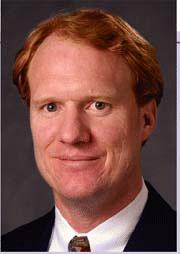Regarding overuse of antibiotics for sinus infections, Dr. Benninger said, “We are stuck. Patients demand a treatment for a self-limiting problem, like a cold with runny nose and cough. They are convinced that antibiotics make them better quicker, and they are angry when they don’t get antibiotics.”
Explore This Issue
July 2007If a cold lasts longer than seven to 10 days, the cause is more likely to be bacterial than viral—but this is true in only 60% of cases, he continued.
“Chronic rhinosinusitis is a different ballgame from acute rhinosinusitis,” he said. “There is no evidence that antibiotics are effective for chronic rhinosinusitis, which has multiple causes, some of which we don’t understand. The best treatment is anti-inflammatory medications, such as intranasal or systemic steroids [for which there is no FDA approval] and repetitive irrigation for symptom relief,” Dr. Benninger said. In selected patients, there is some evidence that low (subtherapeutic) doses of macrolides, “which are not very good antibiotics,” may be helpful in chronic inflammatory sinusitis, he continued, because of an anti-inflammatory, not a true antibiotic, effect.
Emergency room doctors and family physicians are usually pressed for time and when confronted with patients who demand a drug, they prescribe an antibiotic, thinking it can do no harm. Patients with sinusitis may be more likely to heed the advice of an otolaryngologist, Dr. Benninger noted.
“If a patient comes in with a cold of four or five days’ duration, I tell him or her that statistics show that it is exceedingly unlikely that the infection is bacterial. I tell them I can obtain a culture, which takes two days, and I also tell them that if there is no improvement on day 7 or 8, to call the office for a prescription for an antibiotic,” he said.
©2007 The Triological Society

Leave a Reply